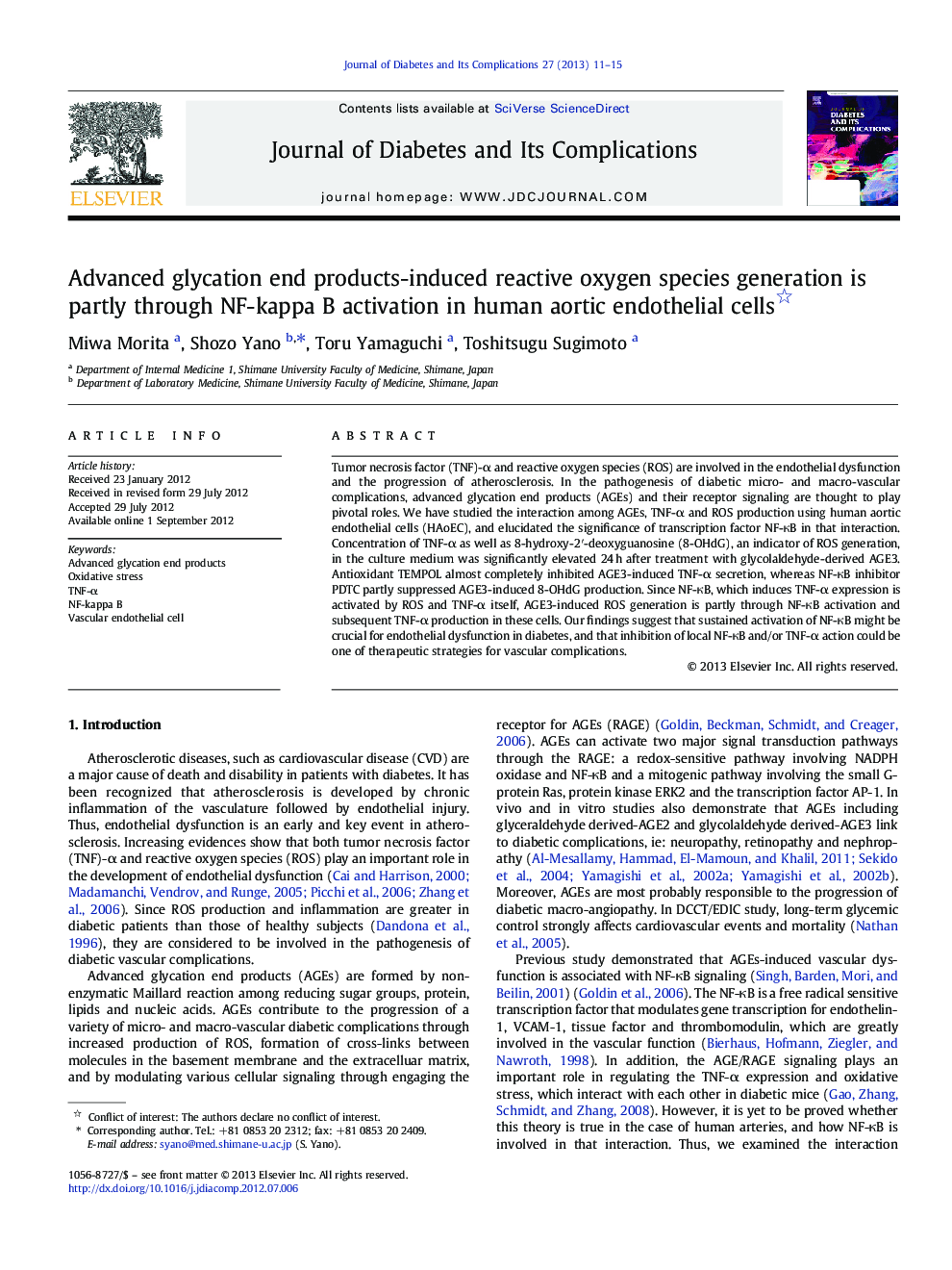| کد مقاله | کد نشریه | سال انتشار | مقاله انگلیسی | نسخه تمام متن |
|---|---|---|---|---|
| 2804396 | 1156870 | 2013 | 5 صفحه PDF | دانلود رایگان |

Tumor necrosis factor (TNF)-α and reactive oxygen species (ROS) are involved in the endothelial dysfunction and the progression of atherosclerosis. In the pathogenesis of diabetic micro- and macro-vascular complications, advanced glycation end products (AGEs) and their receptor signaling are thought to play pivotal roles. We have studied the interaction among AGEs, TNF-α and ROS production using human aortic endothelial cells (HAoEC), and elucidated the significance of transcription factor NF-κB in that interaction. Concentration of TNF-α as well as 8-hydroxy-2′-deoxyguanosine (8-OHdG), an indicator of ROS generation, in the culture medium was significantly elevated 24 h after treatment with glycolaldehyde-derived AGE3. Antioxidant TEMPOL almost completely inhibited AGE3-induced TNF-α secretion, whereas NF-κB inhibitor PDTC partly suppressed AGE3-induced 8-OHdG production. Since NF-κB, which induces TNF-α expression is activated by ROS and TNF-α itself, AGE3-induced ROS generation is partly through NF-κB activation and subsequent TNF-α production in these cells. Our findings suggest that sustained activation of NF-κB might be crucial for endothelial dysfunction in diabetes, and that inhibition of local NF-κB and/or TNF-α action could be one of therapeutic strategies for vascular complications.
Journal: Journal of Diabetes and its Complications - Volume 27, Issue 1, January–February 2013, Pages 11–15